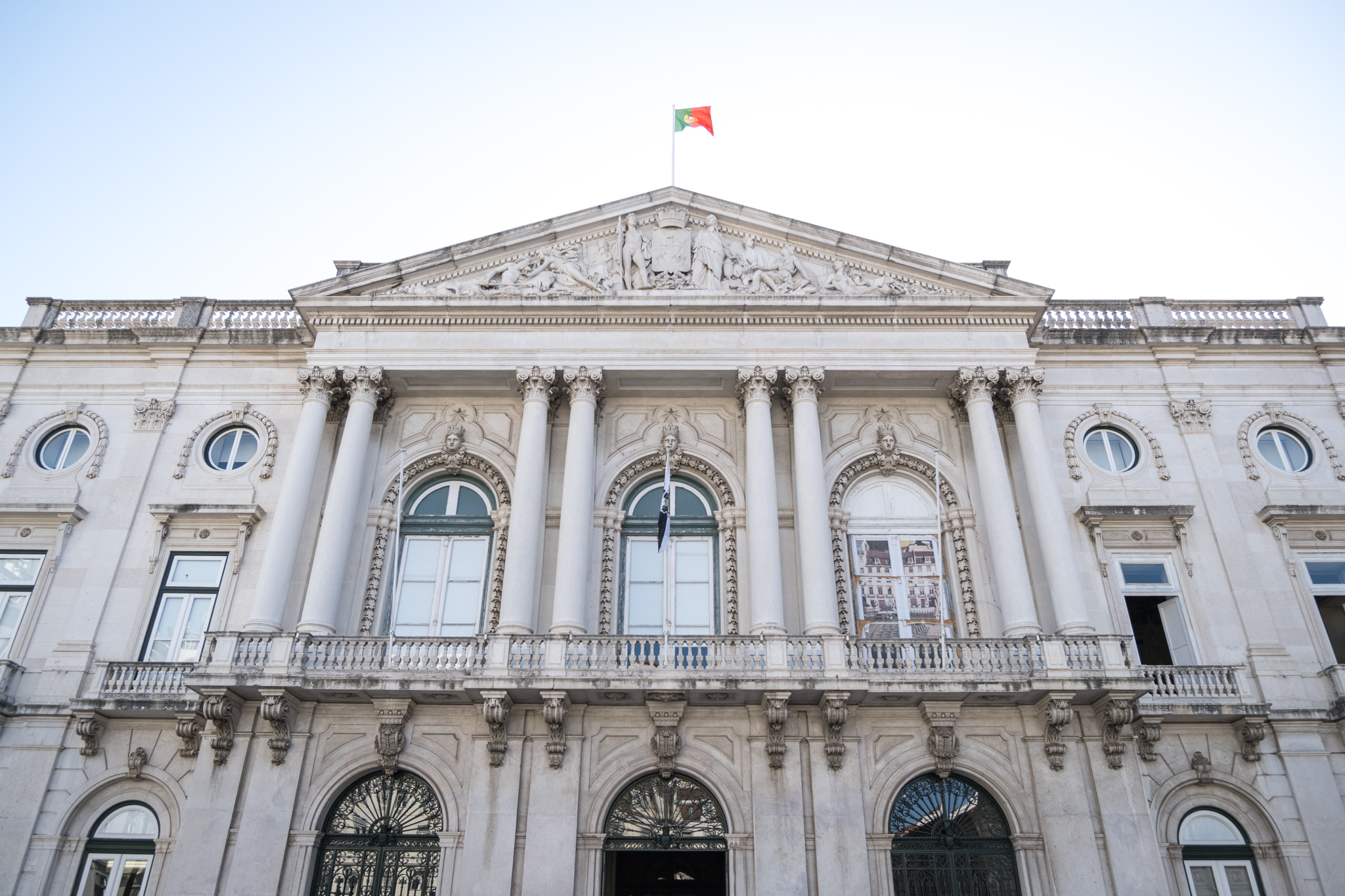It is in the town hall meetings that the entire executive comes together to decide the fate of the city. PCP says there have been too many extraordinary meetings, where councilors without portfolio have less time to speak.

The PCP's councilmen at Lisbon City Hall (CML) say that the mayor, Carlos Moedas, is promoting too many extraordinary meetings, using a "exceptional character" which, in the communists' perspective, conditions the councilors without portfolio (the so-called "opposition"). The PCP also believes that the convening of extraordinary meetings "follows clear procedural rules, to deal with specific and urgent matters".
In a press release, the PCP states that, "in the current term of office, the number of extraordinary meetings called by the President of the CML represents about 60% of the total number of meetings". The Communists point out that "the extraordinary meetings do not, as a rule, have a period before the agenda (PAOD)which results in a decrease in the political intervention of the councilors without portfolio. This period of ordinary meetings is the moment where the councilors without portfolio present their requests for information and clarification, motions, requirements, and/or make political statements, ask for clarifications and present proposals and monitor the performance of the municipal management."
What are extraordinary meetings?
Recall that a city council is composed of councilors with portfolio (that is, with one or more specific portfolios) and councilors without portfolio (who assume a mostly opposition role). In the current case of CML, all councilors with responsibilities belong to Carlos Moedas' list (the coalition New Times), and in the seats without portfolio are represented PS, PCP, BE, Livre and the Citizens for Lisbon (CPL). The executive meetings of a City Council are open to the entire executive, which includes the representatives of "opposition" political forces.
According to the Lisbon City Council's Rules of Procedure, the council meetings can be ordinary or extraordinaryif you need to meet more often. The ordinary meetings "have biweekly periodicity" and must take place "on waking days" by the executive, at 9:30; these are private meetings, with the exception of the last one of each month which is a public meeting and which, not only has public online streaming, but any citizen can sign up to speak at that meeting and thus speak directly to the Mayor.
Extraordinary Chamber meetings, on the other hand "are convened by the Mayor, on his own initiative, or at the request of at least one-third of the respective members, upon written request indicating the subject matter to be addressed". The convocation of extraordinary meetings must take place "with at least two working days' notice". Ordinary meetings have, as a rule, two moments while ordinary meetings have only one, the Agenda, where the matters that have been scheduled for that meeting are dealt with. But in ordinary meetings, there is a period before the Order of the Day in which all councilors can speak freely.
"In extraordinary meetings there is no Period Before the Agenda, and the City Council deliberates only on those matters for which it has been expressly summoned"the Rules of Procedure state. However, "the City Council, by majority vote, may determine a Period Before the Agenda, in extraordinary meetings, not to exceed 30 minutes".
What do the PCP councilors say?
"The successive and uncritical calling of extraordinary meetings is jeopardizing the regular functioning of the City Council, since it has a wide range of powers of its own that are not delegated and whose decisions require its approval for which a careful consideration of the proposals is necessary"the PCP councilors regret. "Now, the constant scheduling of extraordinary meetings, in a higher number than the ordinary ones, waives the need to comply with the regulatory deadlines for the distribution of scheduled proposals, which is reduced from 7 days to 48 hours. As a result, this greatly limits the capacity for analysis, especially on more complex issues. This cannot continue to happen."
The communists also say that "the schedule of ordinary meetings of the CML is previously known by the citizens, which generates confidence, since they can, with the expected anticipation, follow the functioning of the body".Because they can be called only two days in advance, extraordinary meetings can be announced at short notice.
"Given the dragging of the current situation, even after repeated warnings made by the PCP councilors, the public denouncement of this situation, made here, comes with the demand for a prompt change in the organization model of the work that has been adopted by the current municipal management, resuming the regular functioning of the City Council, a schedule of meetings, if necessary with the introduction of more ordinary meetings, similar to what happened in previous terms and putting an end to the continued disrespect for the rights of opposition councilors."
In the same note sent to the media, the communists indicate that, "besides the successive and constant scheduling of extraordinary meetings, the documentation supporting the proposals is successively subject to changes, and many times the supporting and financial documents arrive on the very top of the meeting, which somehow makes a careful and supervisory analysis unfeasible and makes it difficult to prepare the meetings and consequent interventions of the councilors without portfolio, who have other professional activities".
The calendar of ordinary and extraordinary CML meetings can be followed here or in new Citizenship Calendar launched by Lisboa Para Pessoas. Here can be found the agendas, edicts and minutes in draft of the different meetings. According to the PCP, 48 town hall meetings were called from the beginning of the current term (2021-2025) to today's date, of which 27 (57%) were extraordinary:
- 48 Town Hall meetings
- 9 private, 8 public and 4 public decentralized
- 27 extraordinary meetings (57% of total)












